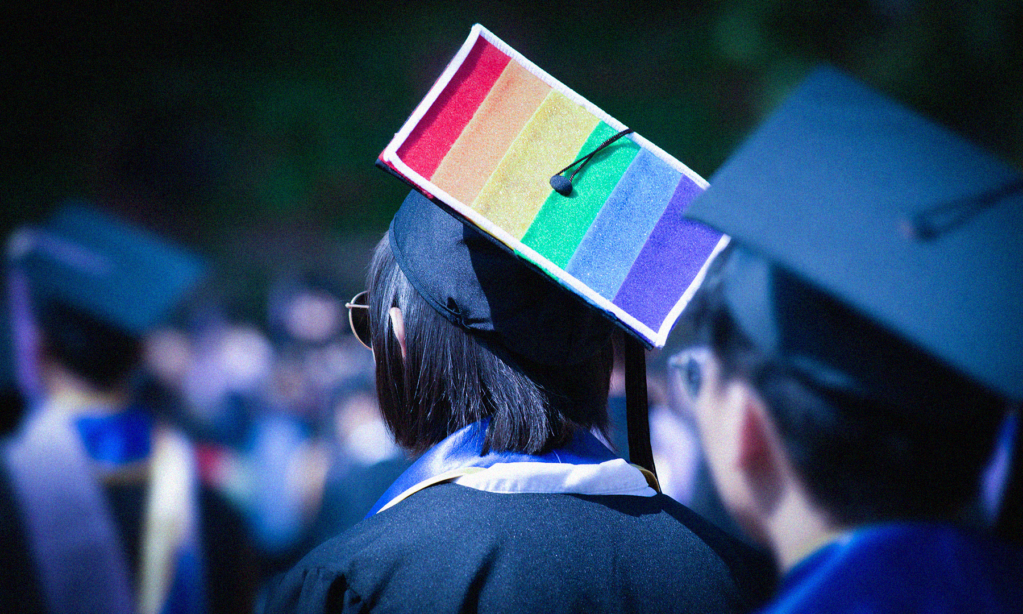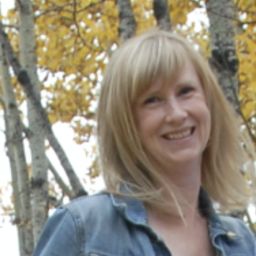Many Alberta schools have references to safe and caring learning environments on their websites, but in reality, fail to provide programming, effective policies, and action to protect LGBTQ2S+ youth in schools. There is a tension between theory and practice, which largely stems from fear; fear of parent push back, fear of enrollment decline, and an underlying homophobia that is too socialized to even admit to. Perhaps even more than that, there is a fear of making a mistake.
The world’s largest crisis prevention and suicide intervention organization for LGBTQ2S+ youth, asserts that youth who identify as non-binary, gay, lesbian, queer or transgender are at a significantly higher risk for depression, anxiety, substance use, and suicidality even before the Covid-19 pandemic exacerbated that risk. If ever there was a time to face fears, and look for a solution, it is now.
If you Can’t Stand the Heat, get out of the School
Kosciw et al. credit the existence of gender and sexuality alliances (known by the acronym GSA) with being the most impactful and protective measure schools can provide to students who identify with expansive gender identities and sexual orientations. However, once these inclusive clubs are generated by a student advocate, they require teacher support and resources to maintain the safe space they offer; in essence, the flame requires someone to tend to it so it does not go out. For this reason, it is imperative that programming be implemented alongside GSAs to support student advocates in all Alberta schools. Community support, resources and research, and access to legislation and legal rights are the next steps to maintaining safe and inclusive learning environments.
SOGI 1 2 3
SOGI 1 2 3, the primary program of ARC Foundation, is an initiative to make schools safer and more inclusive for students of all sexual orientations and gender identities (SOGI) in both British Columbia and Alberta. The numbers correspond with the methods for implementation which are: 1: policies, 2: environments, 3: teaching (ARC Foundation, 2019b). SOGI 1 2 3 is not a curriculum but rather focuses on supporting networks of educators across Alberta to work collaboratively and creates publicly available SOGI-inclusive professional development and classroom resources with and for educators.
Much like Cooley’s looking glass, SOGI123 is committed to creating reflections of students of all identities in Canadian schools, but they cannot do it alone, just like one teacher and a GSA cannot maintain inclusive spaces in schools all on their own. The program asks schools to evaluate their practices and recognizes that a “committee of experts cannot bring change. Change will come from a community of educators trying, learning, failing, and succeeding together.”
Non-binary and transgender expression in schools is most easily accepted and honoured by other students. It is the adults, ranging from parents and teachers, to administrators and support staff or visitors who appear to have the greatest challenge accepting genderqueer, gender fluid, and agender expressions from the children in their care. Again, it frequently comes down to fear. Ask adults over the age of 40 (who are not immersed in academic discussions or active learning) about gender expression and they will likely produce a deer in the headlights look and often more questions than answers. The range of terminology, meanings, and implications of not knowing what to say, can be overwhelming. It is important to note that this actually describes many of the teachers, administrators, and board members in Alberta schools beginning this work, thus supporting them with programming, learning, and community is not just necessary, it is negligent to ignore.
Choosing this program should be easy; “SOGI-inclusive policies and procedures save lives.” Undoubtedly, marginalized students resulting from all forms of systemic oppression are vulnerable in Alberta schools. “Systematic reviews and meta-analyses have consistently found that LGB[TQ2S+] youth have a higher prevalence of depression, selfharm, suicidal ideation and attempts, and problematic substance use, compared to heterosexual youth."
Given that this is a known reality, it is essential that Alberta educational leaders and teachers take action to protect students’ lives. The time is now because there has never been more research, and more support accessible to teachers than today. Also, programs like SOGI123 offer step by step support in how to make positive changes to benefit inclusive SOGI practices. The American Civil Liberties Union (ACLU) argues that victimization, bullying and hate crimes affect all children not just those who have “non-conforming gender identities and expressions."
Creating school environments that respect and affirm gender diversity will empower all students rather than limit them."
They also argue in favour of organizations like SOGI123 that create school climates and culture that are not just gender inclusive but more accepting in general. Schools with active GSAs and programs such as SOGI123 to support the teachers and administrators in developing inclusive spaces “discourage children from expressing judgments about people based on factors like race, class, sexuality, gender, family structure, ethnicity and religion."
The most important aspect of this kind of programming is not the reliance on outside support, but rather a community of educators within Alberta schools who know what questions to ask, what is legally required, who to reach out to for support, and embracing “failing forward” as part of the process.
The SOGI Scan
Based on SOGI123’s guidelines, I recently conducted step two of the SOGI Scan. This is a five-step starting point for SOGI123 schools. It helps celebrate inclusive practices already working within the school, and also pin-points ways that the school could improve. The scan includes an evaluation of policies, spaces, resources, and anonymous feedback from staff and students.
Sadly, my scan yielded a failing grade. While some teachers have intentionally put up pride notices or included rainbow symbols or flags in their classrooms, the overall tone of the school is not yet inclusive, but focuses on binary gender expression. While Alberta schools, including my own, espouse inclusive and empowering beliefs, the policies do not align with practice, training, programming and resources, or overall student experiences.
Programming such as SOGI123 is essential to align teaching professionals with student advocates such as those in GSAs who are the student developers of safe spaces. However, these student advocates need adult support through programming, not just to keep GSAs running, but to prevent widespread instances of bullying and marginalization of gender diverse youth which contributes to a school’s overall academic achievement, absenteeism, and student retention. If student wellness and safety does not pique the interest of administrators in Alberta, perhaps the bottom line will.
Embers of Equity: Benefits for the Entire School Community
School programming like SOGI123 has the ability to benefit the entire learning community. In essence, the programming helps to create safe spaces for LGBTQ2S+ youth, but it also serves as a way for adults to learn how to support students with GSAs, and demonstrate bravery by allies in the classroom. Student advocacy through GSAs and other forums can only go so far; adult support is seen as the most important intervention, and sorely needed.
If indeed, the number of supportive adult allies in school settings increases self-esteem, grade point averages, reduces absenteeism, and limits marginalization and negative treatment of Alberta’s youth, what is it that administrators and school boards in Alberta are waiting for, and how is it possible that programming like SOGI123 is not in each Alberta school already? The answer is complex; though it might make sense to say it is all smoke and mirrors given the earlier reference to both. It is perhaps better said that it is steeped in fear of parental mobilization against schools, funding models based on enrollment, and historical oppression that teaches the practice of exclusion.
Fanning the Flames
Groups like Alberta’s Parents for Choice in Education, known as PCE, aggressively target teachers, administrators and the government through media outlets and private briefs such as their opposition statement regarding Alberta’s Bill 10 from 2015—which mandated school to allow the creation of Gay-Straight Alliances (GSAs) upon request, and protected the privacy of participants. While this is a long time ago now, the push back is consistent with the climate in education today. In the 2015 policy paper, the authors preferred to remain anonymous citing that they did not want their identities or beliefs to come into question rather than considering the “facts” of their message, and they begin their paper by stating that the parent group is not opposed to, or in favour of, Bill 10. The most shocking and blatant disregard for their readers’ intelligence comes one short paragraph later when they contradict their own statement of objectivity and argue that: PCE opposes Bill 10 because it:
puts students in charge of school clubs; imposes ideological clubs on all Alberta schools; does not require parental consent or parental knowledge; disrespects the importance of a school’s culture… was passed without any real debate about the nature of GSAs; is not based on credible research; was passed without consulting parents and other stakeholders; undermines parental rights in education; attacks choice in education; threatens the diversity of Alberta’s schools, and undermines the fundamental Charter freedoms of citizens.
All Fired up: It’s the Law
In 2016 a set of recommendations regarding best practices for creating respectful learning spaces was published by the Government of Alberta; it includes guidelines for Alberta teachers, administrations, and governing bodies outlining the inclusion and treatment of all students, including those who express diverse sexual orientations and gender identities.
The intention behind it is to limit transphobia and imposed standards of heteronormative binary expressions and identities. The Alberta government, or at least the one that was elected when the document was released, agrees that gender diversity and human rights of all Alberta students must be protected and supported. In fact, they insist that “the rights and needs of students with diverse sexual orientations, gender identities, and gender expressions are respected and inform decision-making."
This directive from the provincial governing body to consider students with expansive gender expressions and sexual orientations when making decisions at the school level is of particular interest when contemplating the implementation of programming like SOGI123. In no uncertain terms, the Alberta guidelines express the necessity of making change in schools to unwaveringly support inclusive spaces and create necessary change for LGBTQ2S+ students and their families, and teaching professionals; in fact, it is the law and must be at the forefront of school planning and decision-making.
Let Sparks fly
On the British Columbia provincial website there is a powerful statement that everyone has a sexual orientation and gender identity and that it is not unique to LGBTQ2S+ people. “It's an inclusive term that applies to everyone, whether they identify as lesbian, gay, bisexual, transgender, queer, two-spirit, heterosexual or cisgender (identifying with the same gender that one was assigned at birth)."
This message from Alberta’s provincial neighbour is essential to changing the narrative in schools, and so too is providing resources such as The Trevor Project (2021), Alberta GSA Network (n.d.) and Gender Spectrum Organization (2019) that offer support to youth advocates and safe spaces to withstand the soot and smoke that is part of the current climate of education in Alberta. While there are certainly unintentional microaggressions of well-meaning teachers and educational leaders, programming and effective policies are still needed in Alberta schools to support students who advocate for the validation and support that everyone deserves.
*Since this article was written, the author’s school has undertaken work with SOGI123 and aligned with a cohort of other schools beginning its implementation in Alberta; a small step forward.







